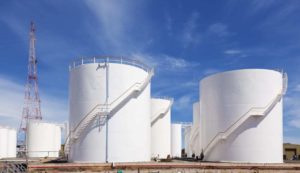Table of Contents
Pressure vessels play a pivotal role in many industries, containing gases or liquids at high pressures. Regular inspections are critical to ensure their safe and efficient operation. This guide delves deep into the essentials of what is a pressure vessel inspection, emphasising the need for compliance and safety.
What is a Pressure Vessel?
A pressure vessel is a container designed to hold gases or liquids at a pressure significantly different from the ambient environment. These vessels are critical in sectors such as energy, chemicals, and pharmaceuticals, where they are essential for processes like chemical reactions and storage.
What is a Pressure Vessels Inspection Importance?
Now that we understand what a pressure vessel inspection involves, let’s delve deeper into its importance. Routine inspections are crucial for the longevity and safety of pressure vessels because:
- Legal Requirements for Inspections
Various international and local regulations mandate the inspection of pressure vessels. These laws ensure that the vessels meet safety standards to protect workers and the environment.
- Safety Measures and Compliance
The primary goal of these inspections is to ensure that all pressure vessels operate within the safety parameters set by relevant authorities, thereby preventing accidents and failures.
How is a Pressure Vessel Inspection Conducted?

Inspection processes are thorough and tailored to address the unique demands of different types of pressure vessels, which are:
- Preparation for Inspection
This includes cleaning the vessel, ensuring it is depressurised, and setting up safety measures to protect inspectors.
- Techniques Used in Inspections
Inspectors utilise a variety of techniques such as ultrasonic testing, radiography, and visual inspection to assess the condition of the vessel.
What is a Pressure Vessel’s Common Issue?
Inspections often uncover several issues that, if unaddressed, could lead to severe consequences.
- Corrosion and Material Wear
Corrosion is one of the most common problems, which compromises the structural integrity of the vessel. - Issues with Valves and Seals
Faulty valves and compromised seals can cause leaks, presenting immediate safety risks.
What is a Pressure Vessels Post-Inspection Steps?
It’s critical to take proactive steps after an inspection to ensure continued safety and compliance.
- Addressing Detected Issues
Remedial actions must be taken immediately to repair or replace the faulty components identified during the inspection.
- Certification and Documentation
Proper documentation and certification post-inspection confirm that the vessel meets all required safety standards.
Understanding what is a pressure vessel and ensuring it undergoes regular inspections is not just a regulatory mandate—it’s a critical practice that underpins safety and efficiency in industries dependent on these systems. Regular inspections help prevent operational failures and ensure compliance with stringent safety standards, thereby protecting both human lives and environmental integrity.
To ensure the safety and regulatory compliance of your pressure vessels, it is imperative to seek the expertise of a certified inspection service. Origin Endeavours invites you to schedule a thorough inspection with our qualified professionals at your earliest convenience. By doing so, you will secure the operational integrity of your facilities and uphold the highest standards of safety. Contact us today to enhance your compliance measures and achieve peace of mind.




